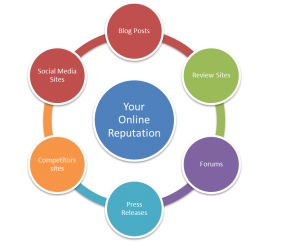 The first page of Google can make or break you. If anything bad appears on this page, whether it's true or not, it will destroy you. Anything which comes after the second page largely doesn't matter because nobody goes there anyway.
The first page of Google can make or break you. If anything bad appears on this page, whether it's true or not, it will destroy you. Anything which comes after the second page largely doesn't matter because nobody goes there anyway.
There are professional agencies which can manage your online reputation for you. These charge fees starting at $5,000 a year, though. Unless you run a large corporation, it just isn't worth the money.
A lot of smaller companies also charge smaller amounts; sometimes under a hundred dollars. There are ways you can push poor content off of the top search engine rankings, though. And it's completely free to do so. All it needs is some of your time.
1. Find Out the Truth
Find out what Google is saying about you. Check the first two or three pages to make sure you're still eliciting the image you want. Keep track of any new content entering the search engines by setting up a Google Alert. You can choose how often you're notified of any new content.
2. Put Yourself in a Domain
Paying $12 each year can buy you your own domain name. It's the place where you can tell the truth about yourself. It's likely to rank highly as well, so you can fight off any nasty vitriol coming your way. It also prevents any of your enemies from buying the same domain and creating a wrongful impression about you.
It sounds like paranoia, but it's best to be too careful than too careless.
3. Link It Together
Form a united front consisting of all your main social media pages and websites, Tumblr and WordPress both have this function. You can ‘apply' your domain name to this website. Anyone who goes to these websites can automatically jump over to your central website. If you want a professionally designed website, consider using one of the free templates on offer.
4. Get Social
Join all the major and minor social networking sites you can. You don't have to spend your spare time socialising about cats and Angry Birds. Enter a blog once every month or so to keep active and make sure Google is still picking you up. By speaking out for yourself in a real time environment, you can respond to any criticism and disprove any nasty rumours.
5. Fill Out Your Details
Fill out as much of your profiles as possible. Having a custom URL can also help get you noticed. Make yourself as visible as popular. Another good strategy is to link your social media websites as much as possible.
For example, Twitter has an option where it automatically Tweets each time the linked Facebook account posts something new.
It doesn't actively combat anything negative, but it increases your presence to force down any lowbrow reviews coming from elsewhere.
6. Remove the Trigger
Assume the Internet has no privacy, whilst also keeping everything private as private. It sounds confusing, but it's quite simple. A child knows posting a picture of you passed out in the snow surrounded by beer bottles in an amusing pose isn't going to win you any points outside of your frat group.
Never post anything embarrassing online. Once it's out there, you have no control over who posts it and what they use it for.
Generally, it's best to avoid posting them completely. Sites like Facebook consistently change their privacy rules to suit them. It can leave your private information exposed before you even notice it. Do you really want to risk anything escaping your grasp?
One option is to create separate social media accounts. Use one for exhibiting yourself to professionals and the other for interacting with your friends.







